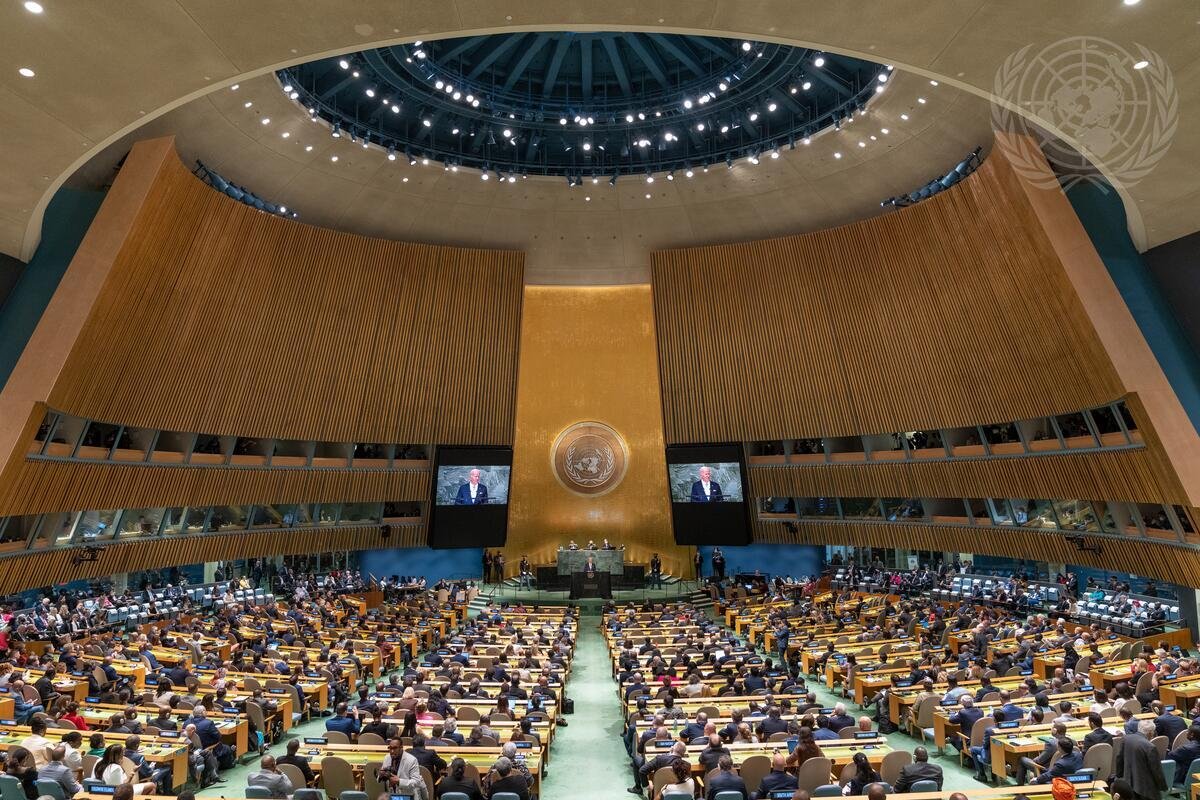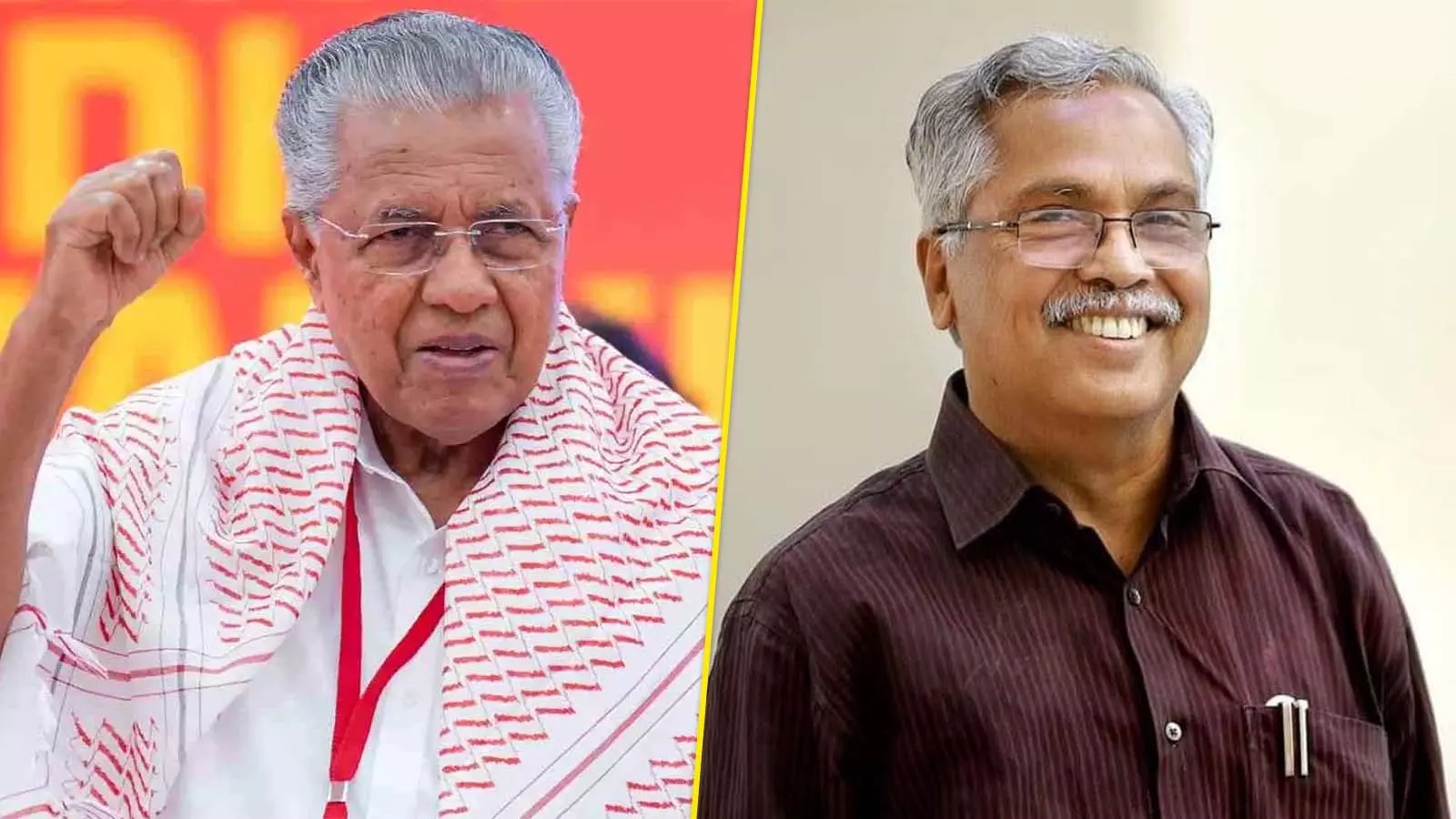Why in the News?
- The 80th session of the United Nations General Assembly (UNGA) is being held in New York in September 2025, bringing together world leaders to discuss pressing global issues.
- The session will address ongoing humanitarian crises, global conflicts, and multilateral cooperation, with high-level participation from member states, observer states, and international organizations.
Key Highlights
- Formation and Membership of the UN
- The United Nations (UN) was formed in 1945 after World War II to promote international peace, security, and cooperation.
- It currently has 193 member states.
- In addition, observer states like the Holy See and State of Palestine, and an observer member, the European Union, can participate and speak at the UNGA, although they do not have voting rights.
- Speaking Order and Traditions
- Brazil traditionally speaks first due to its historical role in early UN sessions.
- The United States, as host of the UN headquarters, is always the second to speak.
- The remaining speaking order is based on hierarchy, seniority, and first-come-first-served registration.
- Speeches are expected to be within a 15-minute voluntary limit, though historically some leaders, such as Fidel Castro (1960, 4.5 hours) and Muammar Gaddafi (2009, 1.5 hours), have exceeded this limit.
- Theme and Purpose of the Session
- The theme for the 80th session is: “Better together. 80 years and more for peace, development and human rights.”
- Discussions will focus on multilateral cooperation, humanitarian assistance, conflict resolution, and sustainable development goals (SDGs).
- Key Global Issues to be Addressed
- Gaza
- The humanitarian crisis in Gaza has intensified, with famine concerns highlighted by global monitors.
- Israeli Prime Minister Benjamin Netanyahu is scheduled to speak.
- Gaza
- Palestinian President Mahmoud Abbas will not attend due to US visa denial, reflecting ongoing diplomatic tensions.
- Ukraine
- The war in Ukraine remains a focal point of UNGA discussions.
- Ukrainian President Volodymyr Zelenskiy will seek global support for Kyiv, while US President Donald Trump aims to mediate an end to the conflict.
- Russia’s Foreign Minister Sergei Lavrov will also attend, underlining the UNGA as a platform for dialogue between conflicting nations.
- Syria
- Syrian President Ahmed al-Sharaa will make a notable debut.
- He leads Hay’at Tahrir al-Sham (HTS), the group responsible for toppling Bashar al-Assad in December 2024 after a 13-year civil war.
- Though HTS remains under UN sanctions, Sharaa has a travel exemption to attend the UNGA, highlighting the complexity of international engagement with sanctioned entities.
- Sudan
- The ongoing conflict in Sudan, between the Rapid Support Forces (RSF) and the Sudanese army, has created one of the world’s worst humanitarian crises.
- Key nations, including the US, UAE, Saudi Arabia, and Egypt, are advocating for a three-month humanitarian truce followed by a permanent ceasefire, which may be discussed at the assembly.
- UN Secretary-General Selection
- Next year, a new UN Secretary-General will be elected after António Guterres steps down.
- The UN Security Council (15 members) must recommend a candidate to the 193-member General Assembly.
- Approval requires consensus among the five permanent members (Britain, China, France, Russia, and the US), reflecting the political complexity of UN leadership selection.
| Observer State 1. Definition: A state or entity that participates in UNGA sessions without full membership or voting rights. 2. Deals with: Observer states can make statements, submit documents, and participate in debates. 3. Significance: They provide a voice in the global forum without full membership obligations. 4. Implication: Observers can influence discussions and diplomacy but cannot vote on resolutions. 5. Use in policy: Observer status is often granted to entities with limited recognition or supranational bodies, such as the EU. Ceasefire 1. Definition: A temporary suspension of hostilities between conflicting parties, often negotiated to allow humanitarian access or peace talks. 2. Deals with: Ceasefires address immediate security and humanitarian concerns. 3. Significance: It reduces civilian casualties and facilitates aid delivery. 4. Implication: Ceasefires are often fragile and require international monitoring. 5. Use in policy: UNGA and Security Council often support ceasefires as a first step toward conflict resolution. |
United Nations General Assembly (UNGA)
- About UNGA
- Created in 1945 after the failure of the League of Nations to promote global peace and cooperation.
- Purpose: Provides a platform for all member states to discuss and address global issues collectively.
- Headquarters:Initially met at various locations; permanent headquarters established in New York City in 1951.
- Grew as more nations gained independence, reflecting the evolving global political landscape.
- Structure of the United Nations General Assembly (UNGA)
- Presidency: The presidency rotates annually among five geographic groups (African, Asian, Eastern European, Latin American & Caribbean, Western European & Others)
- Seating and Decision-Making: Members are seated alphabetically in the General Assembly Hall; important issues (peace, Security Council elections, budget) require a two-thirds majority, while other matters are decided by a simple majority.
- Subsidiary Organs: Includes various committees and commissions for research, investigation, and report preparation. The General Committee (President, 21 Vice Presidents, and six main committee chairs) organizes the work of each session.
- Six Main Committees and Key Bodies:
- Six Committees:
- Disarmament and International Security
- Economic and Financial
- Social, Humanitarian and Cultural
- Special Political and Decolonization
- Administrative and Budgetary
- Other Key Bodies: UN Disarmament Commission, International Law Commission, UN Peacebuilding Commission, Human Rights Council, UN Environment Assembly, Commission on the Status of Women, Commission on Population and Development.
- Six Committees:
- Functions and Powers of the UNGA
- Policy-Making and Recommendations: Discusses global issues like peace, security, and human rights, providing recommendations to address international challenges.
- Budget Approval: Approves the UN budget and assesses member states’ financial contributions to ensure proper resource allocation.
- Appointment Powers: Elects non-permanent members of the UNSC, appoints the Secretary-General, and selects members for other UN bodies like the Human Rights Council and International Court of Justice.
- Subsidiary Organs and Reports: Creates subsidiary organs for specific issues and reviews reports from other UN organs to coordinate global responses.
- Special Sessions and Collective Peace Measures: Can convene special sessions for urgent matters and, under the 1950 “Uniting for Peace” resolution, recommend collective action when the UNSC is deadlocked.
- Equal Representation: Ensures every member state has one vote, giving all nations an equal voice in discussions and decision-making.
- Achievements of the UNGA
- Universal Declaration of Human Rights (UDHR, 1948): Established fundamental human rights and dignity for all, inspiring over 80 international treaties.
- UN Peacekeeping Efforts: Since 1948, UN peacekeepers have served in over 70 missions to maintain ceasefires, protect civilians, and support post-conflict peace processes.
- Decolonization Declaration (1960): Recognized the right of colonial peoples to self-determination, contributing to the independence of more than 80 nations.
- International Convention Against Apartheid (1973): Declared apartheid a crime against humanity, providing a legal framework for dismantling racial segregation and promoting equality.
- Millennium Development Goals (2000): Targeted poverty reduction, education, and health improvements; helped lift over 1 billion people out of extreme poverty by 2015.
- Agenda for Sustainable Development (2015): Introduced 17 SDGs aimed at ending poverty, protecting the planet, and promoting prosperity through sustainable development.
- Treaty on the Prohibition of Nuclear Weapons (2017): Banned the development, testing, and use of nuclear weapons, reinforcing global disarmament efforts.
- Global Compacts on Refugees and Migration (2018): Established principles for safe, responsible migration and coordinated international response to refugee crises.
- Challenges Faced by the UNGA
- Geopolitical Tensions: Rivalries among major powers like the US, Russia, and China hinder consensus on peacekeeping, humanitarian aid, and other global issues.
- Lack of Enforcement Power: UNGA resolutions are non-binding, limiting the Assembly’s ability to ensure compliance and implement international norms effectively.
- Consensus-Building Difficulties: With 193 member states holding diverse priorities, reaching agreement is challenging, often leading to diluted resolutions.
- Resource Constraints: Limited funding and financial shortfalls affect program implementation, causing delays or insufficient action on global challenges.
- Global Divisions and Influence of Powerful States: Competing blocs (e.g., G77, NAM, Western countries) and the influence of major powers sometimes fragment the Assembly, preventing unified responses.
- Dependence on Security Council Cooperation: UNGA struggles to act effectively when the UNSC is deadlocked due to vetoes, as seen in crises like Syria and Myanmar.
- Rising Complex Global Challenges: Issues like climate change, nuclear proliferation, and pandemics demand coordinated action, which is often hampered by fragmentation and limited authority.
- Reforms Needed in the UNGA
- Strengthen Internal Functioning: Improve accountability, transparency, and decision-making through better monitoring and evaluation mechanisms.
- Explore Alternative Funding: Reduce reliance on member contributions by adopting new funding models to ensure smooth functioning.
- Enhance Legal Framework: Establish mechanisms to monitor compliance with resolutions, ensuring member states are accountable.
- Comprehensive UN Reforms: Promote greater cooperation with the UNSC, address regional representation issues, and realign membership distribution if necessary.
- Curb Political Influences: Insulate decision-making from narrow national agendas to increase credibility and effectiveness in addressing global challenges.
- India and the UNGA
- Advocate for Multilateralism: Since 1945, India has promoted equitable representation, decolonization, anti-apartheid, gender equality, climate justice, and nuclear disarmament.
- Decolonization and Anti-Apartheid: Co-sponsored the 1960 Declaration on Granting Independence to Colonial Countries and Peoples; raised the apartheid issue in 1946, contributing to global anti-apartheid efforts.
- Leadership in UNGA: In 1953, Vijaya Laxmi Pandit became the first woman President of the UNGA; India has actively served on the UN Security Council eight times, most recently in 2021-22.
- UN Reforms Advocacy: Supports expanded UNSC membership reflecting current geopolitics, advocating permanent seats for India, Brazil, Germany, and Japan.
- Global Counterterrorism and Peacekeeping: Pushed for the Comprehensive Convention on International Terrorism (CCIT); advocates accountability and reforms in UN peacekeeping missions.
- Climate Justice Initiatives: Emphasizes equitable responsibility for climate change and launched the International Solar Alliance (ISA).
- Nuclear Disarmament: Supports global nuclear disarmament while maintaining India’s policy of minimum deterrence.
Implications
- Global Diplomacy
- UNGA serves as a platform for dialogue among nations on security, human rights, and development.
- Provides opportunities for bilateral and multilateral negotiations on the sidelines of the assembly.
- Conflict Resolution
- The assembly draws attention to ongoing humanitarian crises in Gaza, Sudan, Syria, and Ukraine.
- International consensus or resolutions may influence peace processes and humanitarian aid deployment.
- Multilateral Cooperation
- Issues like climate change, sustainable development, and human rights reinforce the need for collective action among member states.
- The assembly’s theme underscores the importance of collaboration after 80 years of UN existence.
- UN Leadership and Governance
- The upcoming secretary-general selection will influence the UN’s priorities and diplomatic strategies for the coming decade.
- The role requires balancing geopolitical tensions while maintaining credibility as a neutral international body.
- Humanitarian Focus
- Debates on Sudan, Gaza, and Syria highlight the limits of international intervention and the importance of coordinated humanitarian assistance.
- The assembly provides a forum for raising awareness and mobilizing global resources for crisis-affected populations.
Challenges and Way Forward
| Challenges | Way Forward |
| Ongoing armed conflicts in Gaza, Ukraine, Syria, and Sudan | Facilitate ceasefires, humanitarian corridors, and UN-mandated peacekeeping efforts |
| Diplomatic restrictions and sanctions limiting participation | Provide travel exemptions and dialogue platforms while maintaining sanctions accountability |
| Complex UN Secretary-General selection process | Encourage transparent negotiations and consensus among permanent Security Council members |
| Ensuring global cooperation on development and human rights | Strengthen multilateral agreements, implement SDGs, and foster international partnerships |
| Coordinating humanitarian aid amid logistical and political challenges | Improve coordination between UN agencies, member states, and NGOs for efficient aid delivery |
Conclusion
The 80th UNGA session serves as a critical platform for addressing global conflicts, humanitarian crises, and multilateral cooperation. While it provides an opportunity for dialogue and policy coordination, geopolitical tensions, sanctions, and competing national interests continue to challenge effective global governance. The assembly underscores the need for collective action, diplomacy, and adherence to international norms to achieve peace, development, and human rights objectives.
| Ensure IAS Mains Question Q. Discuss the role of the United Nations General Assembly in addressing humanitarian crises and fostering global cooperation. Illustrate your answer with recent examples from Gaza, Sudan, Syria, and Ukraine. (250 words) |
| Ensure IAS Prelims Question Q. Consider the following statements about the United Nations General Assembly (UNGA): 1. All 193 member states have equal voting rights in the UNGA. 2. Observer states and entities like the Holy See, State of Palestine, and European Union can speak but do not have voting rights. 3. The UNGA can impose binding decisions on member states regarding security issues. Which of the above statements is/are correct? a) 1 and 2 only b) 2 and 3 only c) 1 and 3 only d) 1, 2 and 3 Answer: a) 1 and 2 only Explanation: Statement 1 is correct: All 193 member states have equal voting rights in the UNGA, reflecting the principle of sovereign equality. Statement 2 is correct: Observer states and entities, such as the Holy See, State of Palestine, and European Union, can participate and speak in debates but do not have voting rights. Statement 3 is incorrect: The UNGA’s resolutions are generally recommendatory and non-binding, unlike the Security Council, which can adopt binding measures under the UN Charter. |
Also Read | |
| UPSC Foundation Course | UPSC Daily Current Affairs |
| UPSC Monthly Magazine | CSAT Foundation Course |
| Free MCQs for UPSC Prelims | UPSC Test Series |
| ENSURE IAS NOTES | Our Booklist |





